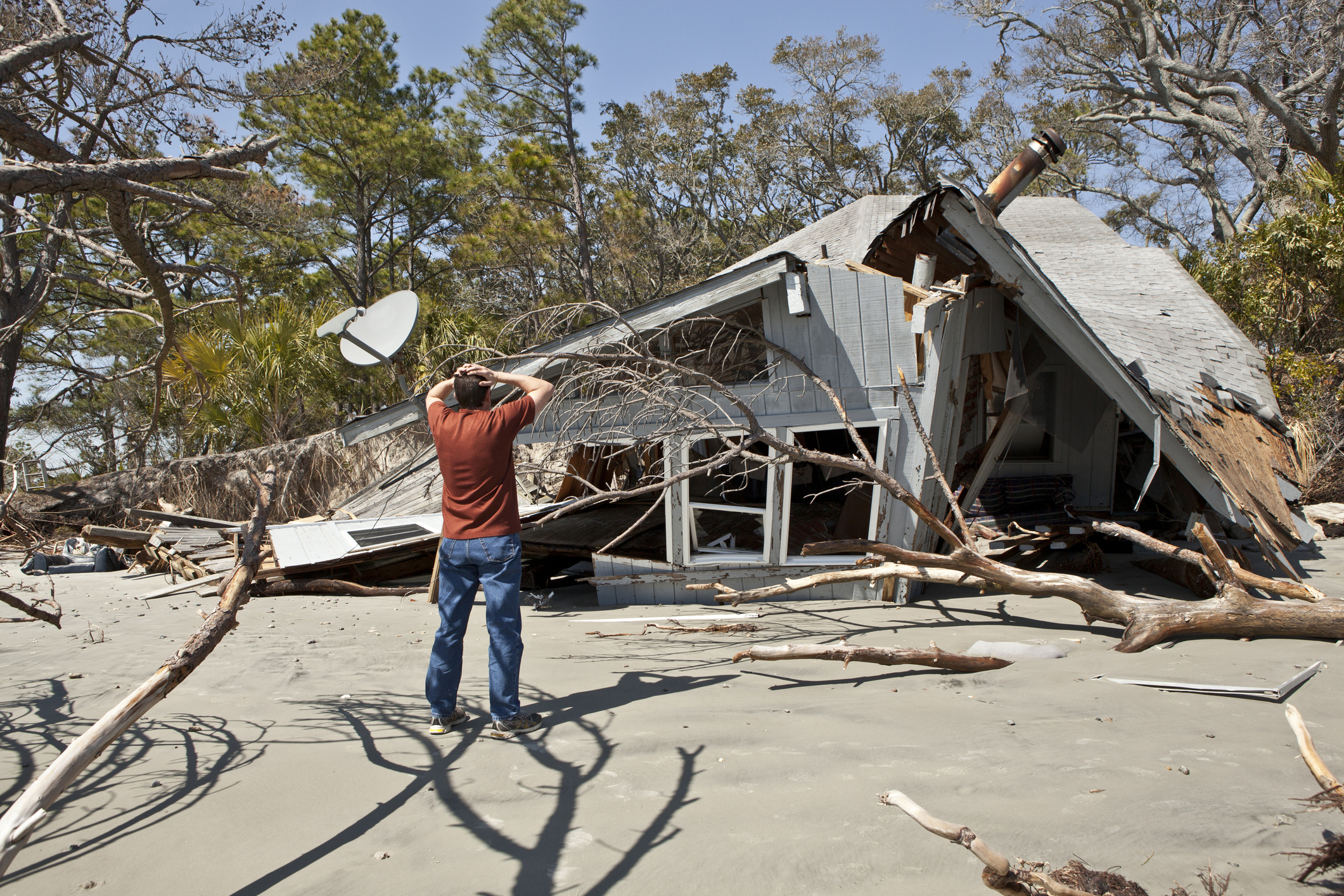Ways to Protect Borrowers From Predatory Home Lending
Land contracts drain low-income communities of resources.


Profit and prosper with the best of Kiplinger's advice on investing, taxes, retirement, personal finance and much more. Delivered daily. Enter your email in the box and click Sign Me Up.
You are now subscribed
Your newsletter sign-up was successful
Want to add more newsletters?

Delivered daily
Kiplinger Today
Profit and prosper with the best of Kiplinger's advice on investing, taxes, retirement, personal finance and much more delivered daily. Smart money moves start here.

Sent five days a week
Kiplinger A Step Ahead
Get practical help to make better financial decisions in your everyday life, from spending to savings on top deals.

Delivered daily
Kiplinger Closing Bell
Get today's biggest financial and investing headlines delivered to your inbox every day the U.S. stock market is open.

Sent twice a week
Kiplinger Adviser Intel
Financial pros across the country share best practices and fresh tactics to preserve and grow your wealth.

Delivered weekly
Kiplinger Tax Tips
Trim your federal and state tax bills with practical tax-planning and tax-cutting strategies.

Sent twice a week
Kiplinger Retirement Tips
Your twice-a-week guide to planning and enjoying a financially secure and richly rewarding retirement

Sent bimonthly.
Kiplinger Adviser Angle
Insights for advisers, wealth managers and other financial professionals.

Sent twice a week
Kiplinger Investing Weekly
Your twice-a-week roundup of promising stocks, funds, companies and industries you should consider, ones you should avoid, and why.

Sent weekly for six weeks
Kiplinger Invest for Retirement
Your step-by-step six-part series on how to invest for retirement, from devising a successful strategy to exactly which investments to choose.
Question: What is being done to rein in the newest epidemic of predatory home lending—so-called installment land contracts or contracts for deed, which victimize thousands of unsophisticated home buyers across America, most of them minorities?
Answer:
Sadly, not enough. But some states, including Maine, Oklahoma and Texas, have put borrower protections in place, and the Consumer Financial Protection Bureau is investigating the land-contract industry for possible violations of the federal Truth in Lending Act.
From just $107.88 $24.99 for Kiplinger Personal Finance
Become a smarter, better informed investor. Subscribe from just $107.88 $24.99, plus get up to 4 Special Issues

Sign up for Kiplinger’s Free Newsletters
Profit and prosper with the best of expert advice on investing, taxes, retirement, personal finance and more - straight to your e-mail.
Profit and prosper with the best of expert advice - straight to your e-mail.
Land contracts are a kind of seller-financed home loan used when the buyer’s income and credit history don’t meet standards for a mortgage. The contracts often have long terms, high interest rates, low monthly payments that are almost entirely interest, and a balloon payment at the end.
Here’s the kicker: The contract isn’t legally recorded, and the seller doesn’t deliver the deed and title to the buyer until the last payment is made. If the buyer misses even one payment, the seller can cancel the contract, quickly evict the “homeowner” and keep everything the buyer has ever paid in—down payment, principal and buyer-paid improvements to the house—plus any appreciation to the property. The buyer has none of the rights he or she would have in a foreclosure.
Land contracts are being used extensively to sell cheap, often dilapidated houses in blighted neighborhoods of Detroit, Atlanta and other cities. After the first buyer forfeits the house by missing a payment, the owner (often an out-of-state corporation owning thousands of houses) sells the house again—and sometimes several times—to other hopeful but ill-informed buyers, making a profit each time.“Designed to fail, land installment contracts exploit low-income would-be homeowners, especially in communities of color, draining them of resources,” concluded a scathing study by the Federal Reserve Bank of Boston.
Here are some badly needed reforms: Require that the contracts be recorded and titles delivered to the buyers; provide longer notice before forfeiture and eviction proceedings; and after forfeiture, return to the buyer all cash paid in (down payment, principal and cost of repairs), minus the fair-market value of rent.
Have a money-and-ethics question you'd like answered in this column? Write to editor in chief Knight Kipinger at ethics@kiplinger.com.
Profit and prosper with the best of Kiplinger's advice on investing, taxes, retirement, personal finance and much more. Delivered daily. Enter your email in the box and click Sign Me Up.

Knight came to Kiplinger in 1983, after 13 years in daily newspaper journalism, the last six as Washington bureau chief of the Ottaway Newspapers division of Dow Jones. A frequent speaker before business audiences, he has appeared on NPR, CNN, Fox and CNBC, among other networks. Knight contributes to the weekly Kiplinger Letter.
-
 Look Out for These Gold Bar Scams as Prices Surge
Look Out for These Gold Bar Scams as Prices SurgeFraudsters impersonating government agents are convincing victims to convert savings into gold — and handing it over in courier scams costing Americans millions.
-
 How to Turn Your 401(k) Into A Real Estate Empire
How to Turn Your 401(k) Into A Real Estate EmpireTapping your 401(k) to purchase investment properties is risky, but it could deliver valuable rental income in your golden years.
-
 My First $1 Million: Retired Nuclear Plant Supervisor, 68
My First $1 Million: Retired Nuclear Plant Supervisor, 68Ever wonder how someone who's made a million dollars or more did it? Kiplinger's My First $1 Million series uncovers the answers.
-
 Could Tax Savings Make a 50-Year Mortgage Worth It?
Could Tax Savings Make a 50-Year Mortgage Worth It?Buying a Home The 50-year mortgage proposal by Trump aims to address the housing affordability crisis with lower monthly mortgage payments. But what does that mean for your taxes?
-
 15 Cheapest Small Towns to Live In
15 Cheapest Small Towns to Live InThe cheapest small towns might not be for everyone, but their charms can make them the best places to live for plenty of folks.
-
 Before Buying Your First Home, Get These Three Ducks in a Row
Before Buying Your First Home, Get These Three Ducks in a RowWith mortgage rates higher than we're used to, making sure you can comfortably afford to buy your first home is more important than ever.
-
 Is Home Insurance Required? Not Necessarily, But That Doesn't Mean You Should Drop It
Is Home Insurance Required? Not Necessarily, But That Doesn't Mean You Should Drop ItHome insurance is required by most mortgage lenders. But even if your home is paid off, does it make financial sense to drop coverage?
-
 5 Ways to Shop for a Low Mortgage Rate
5 Ways to Shop for a Low Mortgage RateBecoming a Homeowner Mortgage rates are high this year, but you can still find an affordable loan with these tips.
-
 Hurricane Insurance Claims: 10 Things You Need to Know
Hurricane Insurance Claims: 10 Things You Need to KnowBecoming a Homeowner Hurricane damage? Know what your insurance will and won't cover to make the most of your policy if you need to file a claim.
-
 Property Tax 101: What Homeowners Need to Know
Property Tax 101: What Homeowners Need to KnowProperty Tax No one likes to pay property tax, but knowing how these taxes work might make the situation more bearable.
-
 5 Great Places to Buy a Vacation Home
5 Great Places to Buy a Vacation HomeWant a vacation home for remote work or a fun getaway? Here are locations with median prices under $500K.